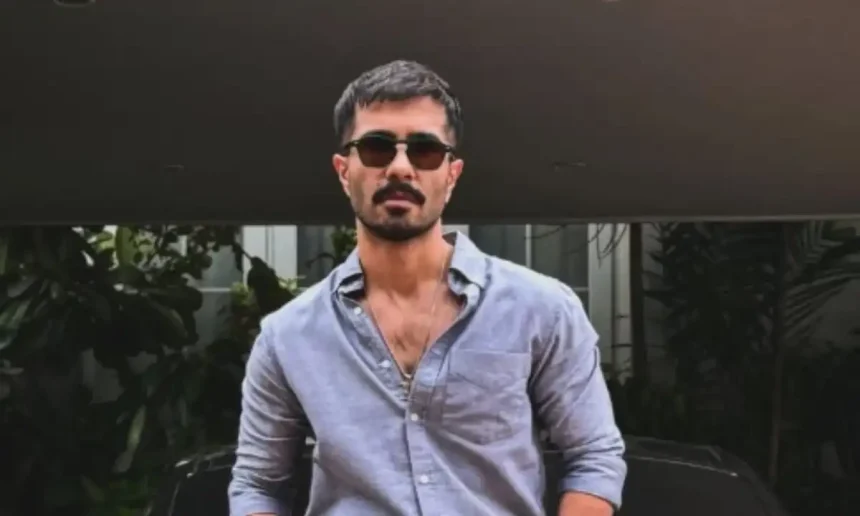Feroz Khan wasn’t just a Bollywood star—he was a legend who reshaped Indian cinema. With a career spanning acting, directing, and producing, he brought unmatched style and charisma to the screen. Known as the “Clint Eastwood of the East,” Khan wasn’t afraid to break the mold, leaving a legacy that still inspires filmmakers and fans today.
From his suave on-screen presence to his bold behind-the-camera innovations, Feroz Khan’s journey is a masterclass in creativity and resilience. In this article, we’ll dive into his life—from humble beginnings to blockbuster triumphs—and explore how he transformed Bollywood forever.
Early Life and Background
Family Heritage and Upbringing
Feroz Khan entered the world as Zulfiqar Ali Shah Khan on September 25, 1939, in Bangalore, India. His roots were as exotic as his persona—his father, Sadiq Ali Khan Tanoli, hailed from Afghanistan’s Ghazni region, while his mother, Fatima, carried Persian blood from Iran. This mix gave Khan a striking look that set him apart.
Growing up, he attended the elite Bishop Cotton Boys’ School in Bangalore. It wasn’t just about books—here, he soaked in a vibrant culture that sparked his creative fire. His family wasn’t new to fame either; siblings like Sanjay Khan later joined him in Bollywood’s spotlight.
Entry into Cinema
Khan’s Bollywood dream didn’t come easy. Moving to Mumbai in the late 1950s, he faced rejection after rejection. Small roles in films like Didi (1959) and Tarzan Goes to India (1962) were his stepping stones. These early struggles weren’t glamorous, but they built his grit.
His big break came in the 1960s, with roles that hinted at the star he’d become. Picture a young Feroz, hustling through auditions, dreaming of the day he’d command the screen. That day wasn’t far off.
Rise to Stardom
Breakthrough Roles and Acting Style
The mid-1960s marked Feroz Khan’s ascent. Arzoo (1965) showcased him as a charming confidant, winning hearts with his effortless grace. Then came Safar (1970), where he tackled love and loss with depth, and Mela (1971), proving he could shine in any setting.
What made him stand out? A blend of sophistication and swagger. Khan didn’t just act—he owned the frame with bold fashion (think leather jackets and aviators) and a charisma that screamed modernity. Fans called him Bollywood’s ultimate style icon.
Accolades and Recognition
Khan’s talent didn’t go unnoticed. In 1970, he bagged the Filmfare Best Supporting Actor Award for Aadmi Aur Insaan. More nods followed from BFJA and IIFA, cementing his place among the greats. These awards weren’t just trophies—they were proof of his craft.
The Visionary Filmmaker
Transition to Direction and Production
By the 1970s, acting wasn’t enough for Khan. He craved control—to tell stories his way. That’s when he stepped into directing and producing. His first shot? Apradh (1972). It brought auto racing to Indian screens—a wild, fresh idea that screamed Feroz.
This wasn’t just a career shift; it was a bold leap. Khan wanted every frame to reflect his vision, and he made it happen.
Pioneering Films and Innovations
Khan’s films were game-changers. Dharmatma (1975), inspired by The Godfather, was the first Indian movie shot in Afghanistan. Talk about ambition! Then, Qurbani (1980) hit screens—a stylish thriller that launched singer Nazia Hassan and became a cultural milestone.
Janbaaz (1986) pushed boundaries with bold themes and a killer cast, while Dayavan (1988), a remake of Nayakan, showed his knack for reimagining classics. Each film was a risk—and a triumph.
Challenges and Triumphs
Big dreams came with bigger stakes. For Qurbani, Khan bet everything, even mortgaging his home. His son, Fardeen Khan, once shared, “Dad lived for cinema—he’d risk it all for a story.” That grit paid off when Qurbani smashed box office records.
Feroz Khan’s Impact on Bollywood
Redefining Masculinity and Style
Khan wasn’t just a hero—he redefined what a hero could be. Dubbed the “Clint Eastwood of the East,” he fused Western cool with Indian soul. His cowboy hats and slick suits became Bollywood staples, inspiring stars like Sanjay Dutt and beyond.
His heroes weren’t just tough—they were polished, modern, and magnetic. That’s the Feroz effect.
Storytelling and Portrayal of Women
Khan’s storytelling broke norms. In Qurbani and Janbaaz, women weren’t props—they had power. Zeenat Aman’s role in Qurbani wasn’t just eye candy; she drove the plot. This was bold for the ’80s, showing Khan’s progressive streak.
His cinematic flair—sleek visuals, gripping narratives—set a new bar. He didn’t just entertain; he innovated.
Mentorship and Legacy
Khan lifted others up too. Nazia Hassan’s career took off with Qurbani. He mentored stars and shaped trends, leaving a ripple effect. Fardeen Khan carries that torch today, a living link to his father’s vision.
Filmography Highlights
Notable Films as Actor
- Arzoo (1965): His breakout charm.
- Safar (1970): Emotional depth at its best.
- Nagin (1976): A thrilling standout.
- Khotte Sikkay (1974): Western vibes, Khan-style.
- Welcome (2007): His final, hilarious bow.
Notable Films as Director/Producer
- Apradh (1972): Racing into history.
- Dharmatma (1975): Bollywood’s Afghan adventure.
- Qurbani (1980): A timeless blockbuster.
- Janbaaz (1986): Bold and brilliant.
- Dayavan (1988): A gritty remake done right.
- Yalgaar (1992): Action-packed drama.
- Janasheen (2003): Passing the baton to Fardeen.
Awards and Honors
Khan’s shelf glittered with accolades:
- Filmfare Best Supporting Actor (1970): Aadmi Aur Insaan.
- Filmfare Lifetime Achievement Award (2000/2001): A career crowned.
- Zee Cine Lifetime Achievement (2008): Industry love.
- Stardust “Pride of the Industry” (2009): A fitting farewell.
These honors tell a story of respect earned over decades.
Personal Life and Off-Screen Persona
Family and Relationships
Behind the stardom was a family man. Khan married Sundari Khan, and they raised Fardeen and Laila. Fardeen stepped into Bollywood, keeping the Khan name alive. With siblings like Sanjay and Akbar Khan also in films, they were a dynasty.
Off-screen, Khan was a charmer—stylish, witty, and a bit of a rebel. Fardeen once recalled, “He’d walk into a room, and everyone noticed.”
Legacy Beyond Cinema
Khan’s reach went beyond films. He quietly supported education and health causes, a side few saw. His style shaped Indian fashion—those leather jackets still pop up in trends.
When he passed in 2009, Bollywood mourned, but his work endures. Retrospectives and tributes keep his spirit alive, and Fardeen ensures the legacy thrives.
Conclusion
Feroz Khan was a force—an actor who dazzled, a director who dared, and a trendsetter who redefined cool. From Arzoo to Qurbani, he didn’t just play the game; he rewrote the rules. His style, stories, and spirit still echo in Bollywood’s DNA.
His journey teaches us: chase your vision, take risks, and leave a mark. Feroz Khan didn’t just star in Bollywood—he made it bolder, brighter, and better.







